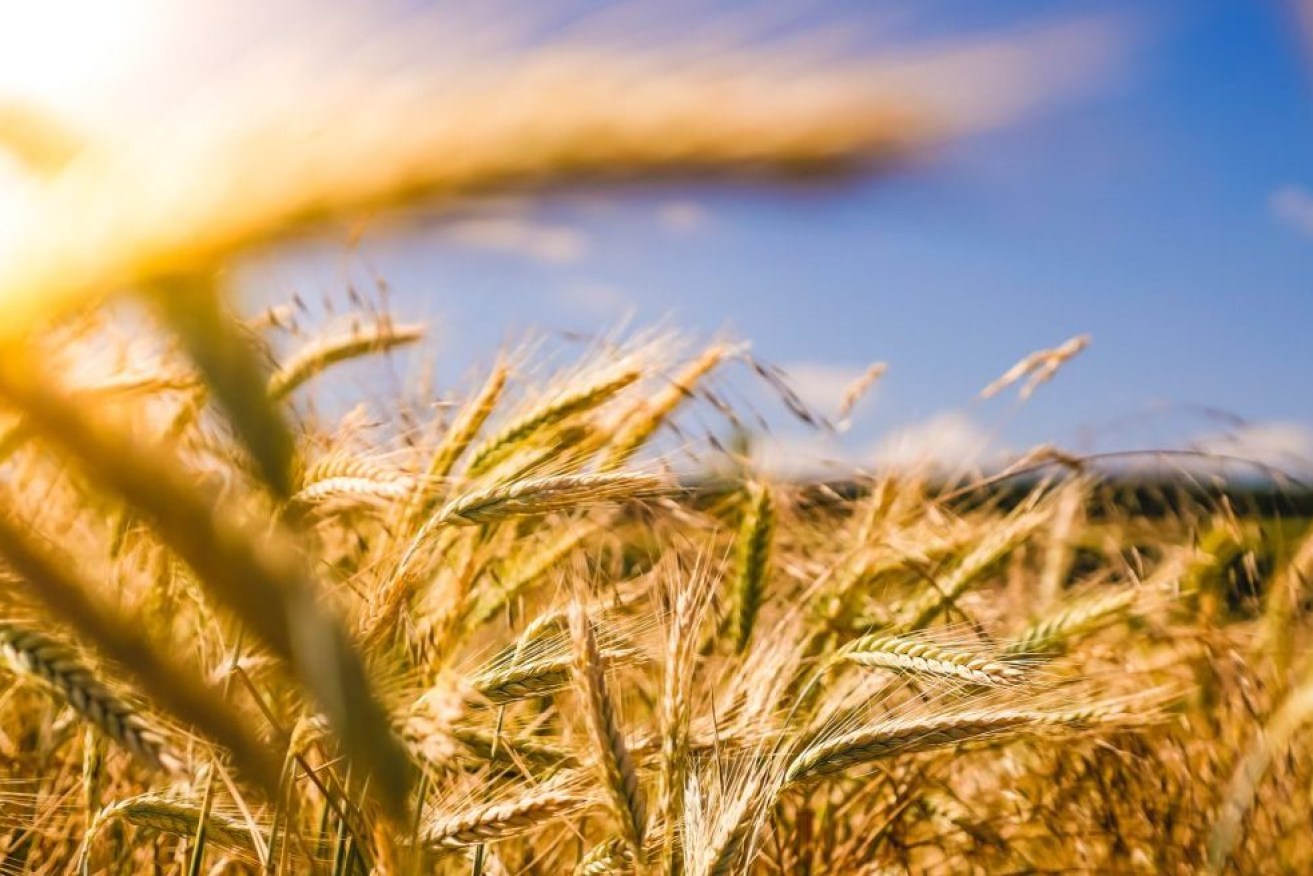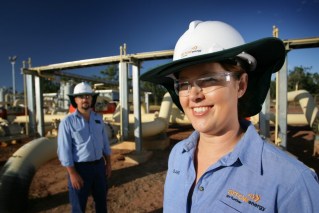Farmer wants a life: Ag bodies keen to engage in zero emissions plan
Prominent leaders of Queensland agriculture are mobilising to promote their industry’s credentials as a key influencer in the nation’s strategic direction on mitigating climate change.


AI could be used to speed up the breeding of plants and animals (Photo by Raphael Rychetsky on Unsplash)
The escalation comes amid mounting pressure on the federal Nationals to reverse the party’s call earlier this week on exempting agriculture from Australia’s climate efforts.
AgForce CEO Michael Guerin said agriculture was a strong part of the climate change solution and was ready to take part in the conversation with Australia’s science community and political leaders to ensure an evidence-based approach was implemented to achieving the carbon neutral targets.
“It will be incredibly difficult for Australia to achieve its climate change targets if agriculture is excluded from our nation’s goal to reach zero emissions,” Guerin said.
“Agriculture doesn’t want a free pass from its responsibility to the planet.”
Guests this morning at a Queensland Futures Institute breakfast in Brisbane are expected to hear from political and business leaders for their views on Queensland’s best policy options for guiding the economy in a post-Covid, carbon constrained world.
Among the panelists will be Dr Georgina Davis, Queensland Farmers Federation CEO, who has told InQueensland ahead of her appearance that climate is a clear first place among the challenges facing farmers in 2021.
With almost 70 per cent of Queensland still drought declared, Davis says recent rainfall, particularly around Brisbane, has been misleading, with most of the state still tinder dry and only small areas receiving patchy rain.
Citing Bureau of Meteorology outlooks, Davis says the La Niña rainfall cycle, tipped by long-range weather forecasters to bring above average rainfall this summer, may also have passed its peak as the traditional wet season draws to a close.
“We had some farmers who planted crops in anticipation of the La Niña – only for some of those crops to fail while some areas had rain but too late to plant summer crops,” she said.
“However, the rain we have had has mostly not been sufficient to replenish storages or provide significant river or overland flows.”
According to Davis, assistance to alleviate drought pain also appears to be evaporating.
“The Emergency Water Infrastructure Rebate, appears to have stalled between Federal and State Ministers, with no clear advice on when it will recommence or if producers who applied previously will be eligible or need to re-apply,” she said.
“The announcement last year has led producers to believe funding was to be available – but no-one appears to have clear, practical answers.
“QFF is also advocating for severe drought to be classified as a natural disaster, to attract similar levels of assistance and response. “
Labour shortage bites
Also drying up is the sector’s labour pool, in particular casual workers to pick ripening fruit and vegetables.
As previously reported by InQueensland, farm employers Australia wide are suffering in the wake of Covid imposed international travel restrictions.
The horticulture sector, which has traditionally relied heavily on a foreign ‘backpacker’ workforce on tourist visas, has been hardest hit.
According to Queensland Department of Agriculture and Fisheries statistics, the state currently needs at least 7000 workers for the sector.

QFF CEO, Dr Georgina Davis.
With demand for casual labour expected to peak around March, it means up to 26,000 jobs going unfilled.
The National Lost Crop Register, which records crops that have gone to waste because of a lack of seasonal labour, put Queensland’s current losses at about $35 million.
Davis says the headlines of worker shortages and the images of unpicked produce rotting on the ground, often don’t show the pain being felt by farming families trying to keep their businesses afloat amid the crisis.
“This is having a direct impact on the number of hours that farmers and existing workforces are doing, with many farmers and their families working incredibly long hours increasing fatigue and negative health outcomes,” she said.
“These losses are impacting business viability and, the capacity and confidence to invest in their next season and will have long-term impacts on Queensland’s agricultural sector.”
Despite working to restore labour strength, David concedes that the appetite for travelling and working overseas may be different in a post-Covid world regardless of the efficacy of the vaccines.
Like others in the industry, her focus is switching to long term structural change to grow and support a domestic farm workforce.
Fully aware that farm employers are tarred with negative perceptions of their industry, such as harassment and exploitation of workers, Davis and her team are currently undertaking a survey to identify the perceptions of the industry held by younger workers in the industry.
“Indeed, the agricultural awards pay higher rates than awards in competing industries and working hours tends to be more sociable, and many farming enterprises are in the proximity to our cities and major towns, but some of the perceptions are far from that,” she said.
QFF has also launched a Micro-credentialing Pilot Program for jobseekers looking to enter the Australian agriculture sector.
Ripe for innovation
Despite the challenges ahead, Covid-induced strains on food supply chains has created an environment conducive to innovation.
“The timing is perfect to apply a more strategic lens to growing and sustaining the industry,” Davis says.
“We have lots of interest in new water infrastructure, new private investment prospects, the development of new export markets for our beautiful produce, new consumer preferences, and new technologies.
“We need governments and industry to ‘join the dots’ of where these opportunities can be maximised including into value-adding such as agri-processing and agritourism, new food products, alternative farming, including, but not limited to, carbon and valuing natural capital), and beyond.
“Of course, funding for the critical research and programs needed will be tight this year, but if we do not invest now, we risk falling behind.”
QFF is currently investigating via case studies in Queensland and NSW, the potential of microgrids, a new model for farms to buy and sell power differently as well as better utilisation of on-site generation and local electricity networks.
They may also have the added benefit of reducing grid losses as energy will be used more locally, leading to lower investment costs in infrastructure while increasing reliability.
The project is currently in the data collection and modelling phase which is being supported by community consultation and workshops.
“The support for the project has been amazing, with both farmers as well as irrigation providers and agri-processing facilities coming together to determine how they can beneficially design an energy system that benefits the entire value chain for different agricultural commodities,” Davis says.
“By mid-next year we anticipate having a series of different models for energy transformation in different agricultural settings, and the data and knowledge to support their practical installation.”
QFF has teamed also up with Enzen Australia to pilot ‘smart’ technologies on two farms in Queensland as demonstration sites and create an IoT solution to cover the end-to-end operations of the properties.
On these farms, a combination of smart meters, sensors and control devices are being installed to capture data and provide direct control for the farmers to improve business practices.
“We will also undertake a detailed analysis of the data and provide recommendations to the farms regarding further ways to increase value,” Davis says.
“The learnings from these sites are expected to confirm the significant value that can be achieved through the use of digital farming as well as acting as a case study for other farms.
“Of course, as part of this smart technology or digital transformation, we must ensure that industry and its workforce can recognise, embrace and benefit the digital transformation of agribusiness.
“QFF, as a member of the Rural Jobs Skills Alliance (RJSA) and in partnership with TAFE, has delivered a number of digital literacy workshops, designed to provide Queensland farmers, advisors and workers in the agriculture sector with the knowledge and confidence to implement agtech solutions to increase efficiency and productivity.
“We all recognise that the adoption of digital agriculture has huge potential to increase the productivity, competitiveness and profitability of the industry.”












